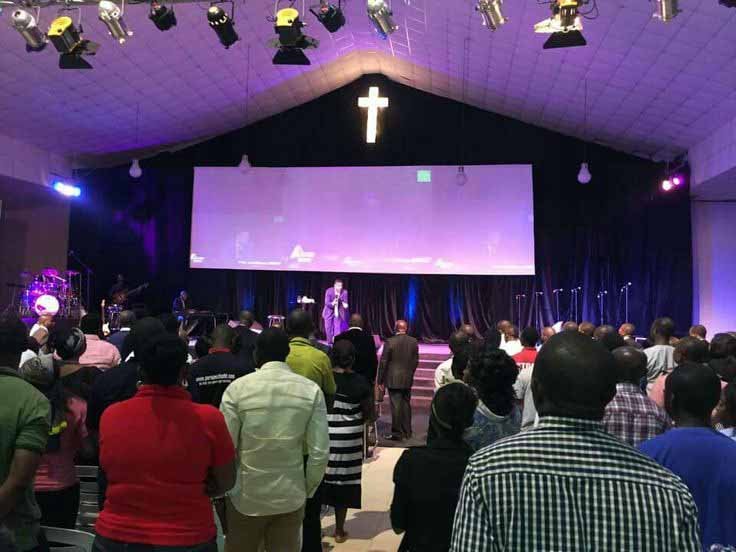It is as clear as day that many local assemblies (churches) today are suffering under financial bondage. Across several denominations in Africa—whether large or small—the local church is often treated like a “golden goose” by the denominational headquarters. In these settings, the local church becomes the main source of income for the central body, rather than being nurtured as a spiritual family or a mission base.

In many instances, local assemblies are required to remit 100%, 90%, or 80% of their income weekly or monthly to the headquarters, in addition to periodic demands for “special seeds” and other financial contributions. This heavy burden has left many local churches stagnant, lacking spiritual and physical growth, and in some cases, barely surviving. Using the local church primarily as a financial outpost has opened the door to spiritual decline, organizational corruption, and a misrepresentation of the Lord’s purpose for His church.
A. THE BIBLICAL AND HISTORICAL FOUNDATION
Scripture References: Acts 8:4; 11:29; 13:1–3; 16:4–5; 1 Corinthians 16:1–3
The concept of one central authority (like denominational headquarters) having full control over all local church operations is not rooted in the Bible. The New Testament model and centuries of early church history clearly show that local churches were autonomous—that is, they operated independently under the guidance of the Holy Spirit, while still maintaining sound doctrine and mutual fellowship.
Let’s examine the biblical model:
- The Church in Jerusalem did not financially control the new local churches being planted in various regions.
- The Jerusalem church did not oversee the operations of the Antioch church, which became a major missionary-sending center.
- The early churches were not forced to remit 80–100% of their income to any central church authority.
- The Apostles trained and commissioned leaders, providing spiritual and moral support, not financial control.
- Local assemblies were instructed to follow Apostolic doctrine, but they managed their own finances (Acts 15:25–29).
- When Jerusalem faced a famine, it was the local churches that sent relief, showing voluntary generosity.
- Believers gave special offerings to meet genuine needs (Acts 4:34–37), not under compulsion but through love.
- The scriptural financial model would allow local churches to send only 15–25% of their income to headquarters, using the rest for church maintenance, missions, outreach, pastoral welfare, and church growth.
Throughout church history, local churches have thrived when they were given room to grow, support their pastors, reach out in evangelism, and plant new churches. Minimal control was exercised from above. Sadly, in many parts of Africa, some denominational “mother churches” and their leaders exercise overreaching administrative and spiritual control, stifling the growth and calling of the local churches.
B. WHY LOCAL CHURCHES MUST BE FREE TO OPERATE
Scripture Reference: Acts 13:1–3
The seven churches mentioned in the Book of Revelation (Asia Minor) were locally independent and spiritually active. Each church was accountable directly to Christ, the Head of the Church—not to a distant headquarters.
Recommended Reading
How To Render Acceptable Service Unto God
130 Secrets Of Successful Marital Relationships
Administering Church Discipline – The Right Way
Here are twelve biblical and practical reasons why local churches must be allowed to operate freely under God’s guidance:
- It is the biblical pattern – Acts 13:1–3; Titus 1:5.
- It follows Apostolic practice – Philippians 4:15.
- It allows the local church to be spiritually alive and fruitful – Acts 14:23.
- It encourages initiative, vision, and leadership development among local leaders.
- It promotes true tithing, where members give to the church, not to individuals or headquarters.
- It motivates pastors, allowing them to serve with joy, integrity, and purpose.
- It helps the church remain relevant to its local community through outreach, evangelism, and social impact.
- It encourages transparency and holiness in financial matters, aligning with both Scripture and civil government standards.
- It leads to the expansion of God’s Kingdom in various regions as more churches are empowered to act.
- It strengthens the spiritual warfare capacity of the local church, enabling her to care for the oppressed and support those in need.
- It allows the church to be a witness through good works, reflecting the love and generosity of Christ.
- It supports the physical development of church infrastructure and local mission efforts.
CONCLUSION
When local churches are allowed to function as Spirit-led, Word-governed, and Christ-centered bodies, they thrive and become powerful agents of change in their communities. Denominational headquarters should provide oversight, training, and spiritual support, not oppressive financial and administrative control. Let the Church of Jesus Christ be free to fulfill her calling—locally and globally.
